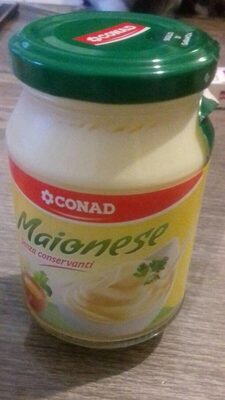
Barcode: 80037729
Maionese
HALAL
📝 Reason: Most ingredients in this mayonnaise are plant-based or inherently Halal except ‘natural flavors’, which could originate from animal or alcohol-based sources unless the supplier confirms Halal origin or provides certification. As a result, the overall product status is Doubtful (2) per strict rules, since any Status=2 makes the product Doubtful. Islamic sources address doubtful foods (see Hadith: Narrated Al-Nu’man ibn Bashir, Sahih Bukhari 52, also see IFANCA and other major Halal food authorities regarding flavorings: www.ifanca.org/halal-resources/halal-and-haram-ingredients/flavors/).
🏷️ Category: Condiments, Sauces, Mayonnaises, Groceries
📄 Certificates: N, /, A, Vegetarisch
Ingredients:
Details
Understanding the Halal Status of Maionese
Finding condiments that meet Halal standards can be a challenge for consumers. Maionese, a popular mayonnaise, raises questions about its Halal status due to its ingredients. Here, we delve deep into the Halal status of Maionese and its individual components to provide clarity for the conscious consumer.
Overview of Ingredients
Maionese is made from several ingredients, most of which are plant-based or inherently Halal. The primary ingredients include:
- Sunflower seed oil
- Pasteurized fresh eggs
- Wine vinegar
- Salt
- Sugar
- Lemon juice
- Natural flavors
- Acidity regulator: lactic acid
- May contain mustard
Diving Into the Ingredients
Let’s examine each ingredient for its Halal status:
1. Sunflower Seed Oil
This oil is extracted from sunflower seeds and is plant-based, making it Halal by default. For further reference, check IFANCA.
2. Pasteurized Fresh Eggs
Eggs from permitted animals (such as chickens) are used. As they are not considered meat and are handled to avoid cross-contamination, they are classified as Halal. More information can be found at the Halal Food Authority.
3. Wine Vinegar
Derived from wine, wine vinegar undergoes a transformation (istihala) that converts alcohol into acetic acid, thus rendering it Halal. This viewpoint is supported by scholars and can be further explored at Guidance Halal.
4. Salt
A fundamental mineral, salt’s Halal status is automatic as it contains no inherent Haram components. For more details, see IFANCA.
5. Sugar
Commonly derived from either sugarcane or sugar beet, sugar in Maionese is Halal unless processed through Haram methods. Refer to Eat Halal for further understanding.
6. Lemon Juice
Extracted from lemons, this ingredient is plant-based and Halal. You can learn more at Halal Food.
7. Natural Flavors
The status of ‘natural flavors’ is complex. Without clarity on the source, it may be derived from plants, animals, or even alcohol. This ingredient remains a point of contention, leading to its classification as doubtful (2). Islamic sources address this concern thoroughly (refer to Sahih Bukhari) and further insights can be found at IFANCA.
8. Acidity Regulator: Lactic Acid
Lactic acid is generally produced from plants (like corn or sugar). As long as it’s not sourced from meat or dairy products, it’s considered Halal. More can be found at IFANCA.
9. May Contain Mustard
As a plant-based spice, mustard poses no Halal issues.
Conclusion
In conclusion, while most ingredients in Maionese are Halal, the presence of ‘natural flavors’ renders its overall Halal status doubtful. Due to the strict regulations of Halal consumption, it’s crucial to ensure that all components can be verified Halal, especially for products with complex flavoring agents. If you’re looking for Halal condiments, always check for certifications and labels to make informed choices.
Explore More About Halal Foods
This analysis not only sheds light on the Halal status of Maionese but emphasizes the importance of examining every ingredient thoroughly. Explore more Halal-certified products in our blog and make sure to read ingredients carefully to maintain your dietary laws.
